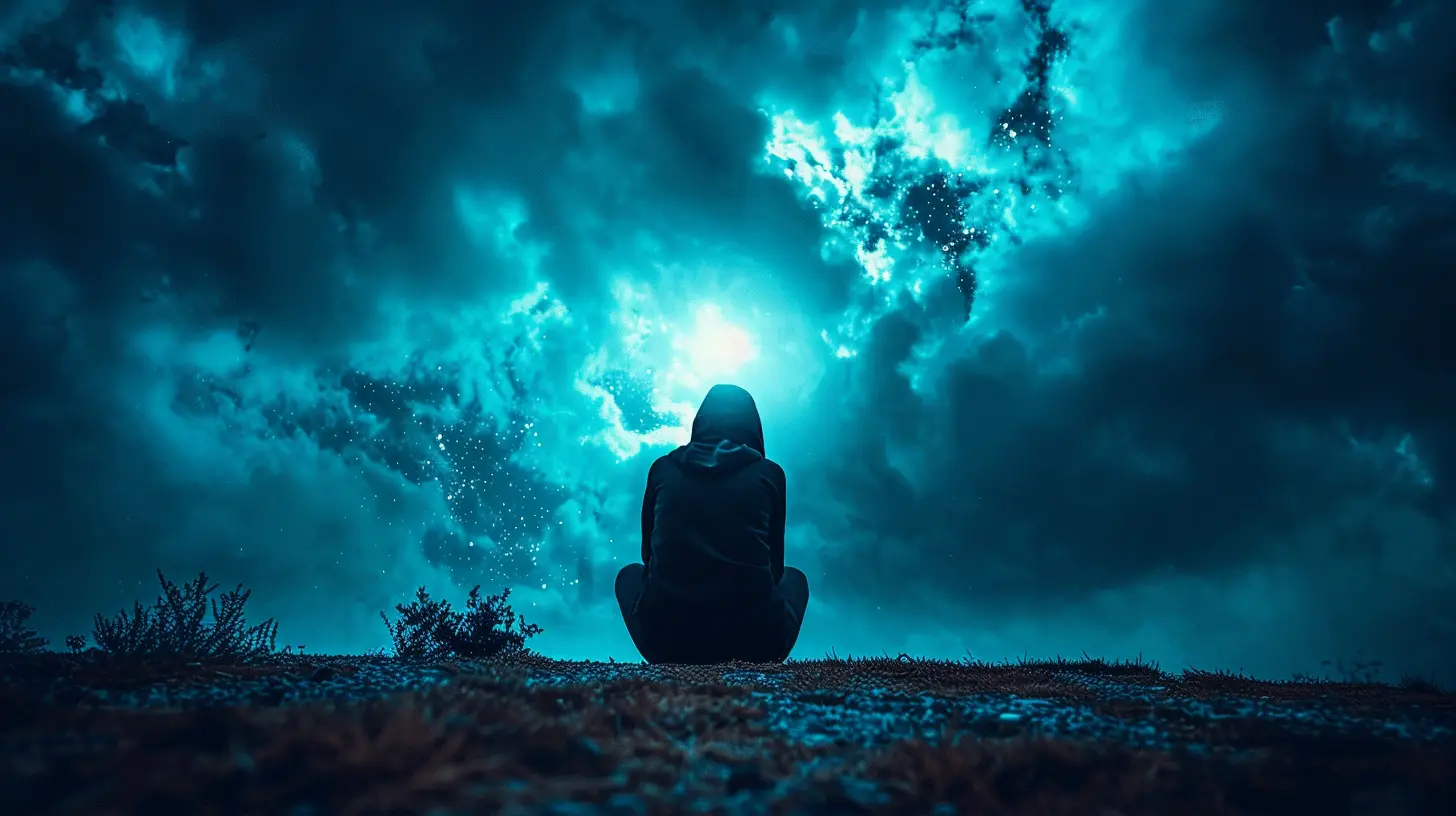Coping with Depression: Strategies for Finding Light in the Darkness
19 October 2025
Let’s just call it what it is—depression sucks. It’s not just “feeling sad” or being “in a funk.” It’s more like drowning in slow motion while everyone else seems to be breathing just fine. It zaps your energy, your joy, your drive, and sometimes your will to keep going.
But guess what? You’re not broken. You’re not weak. And despite how it might feel right now—you’re not alone.
This post isn’t some sugar-coated pep talk or a list of fluffy Pinterest quotes. Nope. We’re diving headfirst into the darkness. And then we’re going to build a ladder and climb our way out together.
It's time to talk about real strategies for coping with depression—tools that actually help, methods that make a difference, and honest truths that need to be said.
What Does Depression Really Feel Like?
Before we dig into solutions, let’s talk about the beast we’re trying to tame.Depression shows up differently for everyone. For some, it’s an emotional tsunami. For others, it’s like living in grayscale while the rest of the world is in full color.
It’s exhaustion you can’t nap away. Tears you can’t explain. Numbness that replaces joy. It messes with your sleep, your appetite, and your ability to think straight. Motivation? Gone. Hope? Feels like a joke.
And the worst part? Sometimes, even the idea of “getting better” feels impossible. But here’s the thing—you can cope with depression. Not overnight, not perfectly, but step by freaking step.
You Are Not Your Depression
Let’s set this straight: you are not your thoughts, and you are especially not your depression.Your brain may be feeding you lies like:
- “You’re worthless.”
- “Nobody cares.”
- “It’ll never get better.”
But here’s the truth: your mind is sick, not your soul. Just like you wouldn’t blame someone for having a broken leg, you shouldn’t blame yourself for struggling with depression.
Start separating yourself from the illness. Picture depression as a fog—it limits your visibility, but it doesn’t destroy the road underneath your feet.
Strategy #1: Don’t Battle Depression Alone
Depression thrives in isolation. It loves silence because silence keeps you stuck.So speak up—even if it’s just a whisper at first.
- Call a friend.
- Text a therapist.
- Tell someone, anyone, “I’m not okay.”
You don't need to have the perfect words or the full explanation. Just break the silence. Human connection has a funny way of bringing warmth to even the coldest hearts.
And no, needing help doesn’t make you weak. It makes you smart. Would you try to do heart surgery on yourself? No? Then why go solo when your brain’s got an infection?
Strategy #2: Move Your Body, Even When Your Brain Says No
I get it. The last thing you want to do when you're depressed is move. Bed becomes your best friend. But movement is a secret weapon.You don’t need a full-blown gym session. Start small:
- Stretch for 5 minutes.
- Walk around the block.
- Dance like a scene from a cheesy movie (yes, really).
Here’s the sciencey stuff: movement increases endorphins and serotonin—aka your brain’s natural mood boosters. Think of it like jumpstarting a dead battery.
Bonus tip? Get outside. Sunlight, even when filtered through clouds, is nature’s antidepressant.
Strategy #3: Stop Trying to “Fix Everything” All At Once
Depression tells you that your whole life is a mess—and you need to repair every broken piece right now.Reality check: that’s impossible.
You’re climbing a mountain, not taking an elevator. Focus on micro-wins:
- Make your bed.
- Take a shower.
- Eat a piece of fruit.
These might sound meaningless, but every small win is a crack of light. Stack them, and they build momentum.
Cut yourself some slack. Healing isn’t linear. It looks more like a toddler learning to walk—wobbling, falling, but always trying again.
Strategy #4: Master Your Inner Dialogue (Yes, It’s Possible)
If you spoke to your friends the way you talk to yourself—would you still have any?That voice in your head can be brutal, right? “You’re lazy.” “You’re a failure.” “You’ll always feel this way.”
Time to start pushing back. When that inner critic pipes up, ask:
- Is this true?
- Would I say this to someone I love?
- Is there another way to look at this?
You’re not looking for toxic positivity here. You’re looking for balance. Acknowledge the pain, but don’t let it grow roots.
Try this: write down one kind thing you’d say to someone else going through this. Now say it to yourself. Loudly, if you can. You’ll feel cheesy. That’s okay. Healing is messy—and sometimes kind of cringey.
Strategy #5: Prioritize Sleep (The Real Kind, Not Just Lying in Bed)
Let’s talk about sleep—because depression and sleep have a messed-up relationship. Some nights you can’t sleep at all. Others you sleep 14 hours and still feel like a zombie.Here’s the deal: your brain needs quality sleep to function. Without it, depression digs in deeper.
Try this bedtime starter kit:
- Go to bed and wake up at the same time—even on weekends.
- Keep your phone out of reach (scrolling = doom).
- Dim the lights an hour before bed.
- Cut caffeine after 2 PM.
If your sleep is really out of control, talk to a doctor. There might be something else going on, and sleep meds or melatonin can be short-term allies.
Strategy #6: Nourish Your Body Like It’s Your Best Friend
Depression messes with your appetite. Some days, food feels pointless. Other days, you eat everything in sight.But food is fuel. Your brain needs nourishment to function properly.
No need to go full-on clean-eating guru. Aim for:
- Real food (not just chips and cookies).
- Protein with every meal.
- Omega-3s (fish, chia seeds, walnuts).
- Plenty of water.
And hey, enjoy your damn chocolate. Just don’t let junk food be your only food.
Strategy #7: Create a “Crisis Plan” for the Darkest Days
Let’s be real—there will be days when the darkness feels suffocating. When brushing your teeth feels like climbing Everest.That’s why a go-to “Crisis Plan” is life-saving. Literally.
Here’s what to include:
1. Emergency Contacts – Friends, family, therapist, hotlines.
2. Grounding Techniques – Deep breathing, cold water splash, 5-4-3-2-1 exercise.
3. Crisis Distractions – Movies, playlists, safe YouTube channels, coloring books.
4. Reasons to Stay – Your pet. That trip you’re saving for. The book you haven’t finished. Whatever gives you even 1% of hope.
Write it down. Keep it close. Use it without guilt.
Strategy #8: Therapy Isn’t Weak—It’s Warrior Work
Therapy isn’t just for crises. It’s for anyone who wants to understand themselves better and build a life that feels worth living.A good therapist is like a guide through the fog. They help you:
- Unpack your emotional luggage.
- Recognize patterns.
- Find better coping strategies.
There’s no shame in getting help. In fact, it’s one of the bravest things you can do.
Can’t afford therapy? Look for sliding-scale clinics, online options, or group therapy. There’s something out there for every budget.
Strategy #9: Choose Compassion Over Perfection
Depression often shows up as a brutal inner voice demanding perfection. But here’s the truth: perfection is a lie.You’re not supposed to “get over it” quickly or heal in a straight line. You’re allowed to:
- Struggle.
- Take breaks.
- Cry for no reason.
- Be human.
Practice compassion like it’s a workout. Flex those empathy muscles—especially toward yourself.
Strategy #10: Build A Future That Feels Worth Living
Let’s zoom out for a second.You might be thinking, “What’s the point?” That’s depression talking. It shrinks your world until nothing feels worth it.
But what if you could start crafting a life that feels just a little bit brighter?
Start imagining again:
- What used to make you feel alive?
- What would you try if fear wasn’t in the driver’s seat?
- What’s one thing you haven’t given up on yet?
You don’t need to have it all figured out. You just need a spark. Then feed it. Protect it. Let it grow.
Final Thoughts: You’re Still Here—That Means Something
If you’ve made it this far in the article, I want to say something loud and clear: you are strong as hell.Don’t ever underestimate the power it takes to keep going when everything inside you says stop.
Depression is heavy. But you are not weak for carrying it.
Keep reaching out. Keep showing up. Keep fighting for yourself.
Because even in the darkest darkness, there is light. Maybe not blinding or obvious—but it’s there. And every day you keep breathing, you move one step closer to it.
And when you can’t see that light yourself? Let others hold it for you.
We’re in this together.
all images in this post were generated using AI tools
Category:
Mental HealthAuthor:

Paulina Sanders
Discussion
rate this article
1 comments
Amalia McCollum
Remember, even the darkest nights end with a sunrise—just don’t forget your coffee!
November 8, 2025 at 3:52 AM

Paulina Sanders
Thank you for your uplifting reminder! Coffee can be a comforting ritual during tough times.


